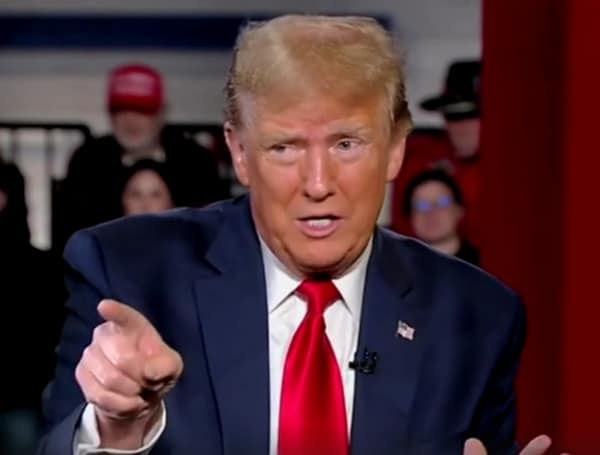The Supreme Court’s ruling Monday on former President Donald Trump’s immunity case has sent shockwaves through the political landscape.
This historic 6-3 decision has far-reaching implications, not only for Trump’s legal battles but also for the delicate balance of power between the executive branch and the judicial system.
“Big win for our Constitution and democracy. Proud to be an American,” Trump said in a post in all capital letters on his social media website Truth Social.
The Supreme Court’s ruling has established a new precedent regarding the scope of executive immunity for former presidents.
Read: U.S. Supreme Court Narrows The Obstruction Charges Against J6 Capitol Rioters And Trump
The justices have determined that while former presidents enjoy absolute immunity for their official acts, they are not shielded from prosecution for their unofficial actions. This distinction is a significant departure from the previously held belief that presidents were immune from criminal liability for any actions taken during their tenure.
“The president is not above the law,” Chief Justice John Roberts wrote. “But Congress may not criminalize the president’s conduct in carrying out the responsibilities of the executive branch under the Constitution.”
The court’s ruling has placed a significant emphasis on the distinction between official and unofficial acts. Official acts are those undertaken in the course of a president’s official duties, such as policy decisions, diplomatic negotiations, and executive orders. Unofficial acts, on the other hand, are those that fall outside the scope of the president’s official responsibilities, such as personal or political activities.
The court’s three liberal justices, led by Justice Sonia Sotomayor, strongly dissented from the majority opinion. They argued that the ruling “makes a mockery of the principle, foundational to our Constitution and system of government that no man is above the law.” Justice Ketanji Brown Jackson, in a separate dissenting opinion, described the ruling as a “five-alarm fire that threatens to consume democratic self-governance.”
This ruling immediately affects the various criminal cases pending against former President Trump. The Washington case, which focuses on his alleged efforts to overturn the 2020 election, will now be sent back to the lower courts to determine how the new immunity guidelines apply.
Similarly, the cases in Florida and Georgia, which involve the mishandling of classified documents and Trump’s actions after his 2020 defeat, will also be subject to the court’s decision.
Read: Florida Rep. Gaetz Demands Answers On Targeting Of Judge Cannon In Trump Classified Docs Case
The Supreme Court’s decision to send the Washington case back to the lower courts has effectively delayed the prospect of a trial before the 2024 presidential election.
This delay raises concerns about the potential impact on the upcoming election, as the former president’s legal battles could overshadow the campaign and influence voter perceptions.
Help support the Tampa Free Press by making any small donation by clicking here.
Android Users, Click To Download The Tampa Free Press App And Never Miss A Story. Follow Us On Facebook and Twitter. Sign up for our free newsletter.



